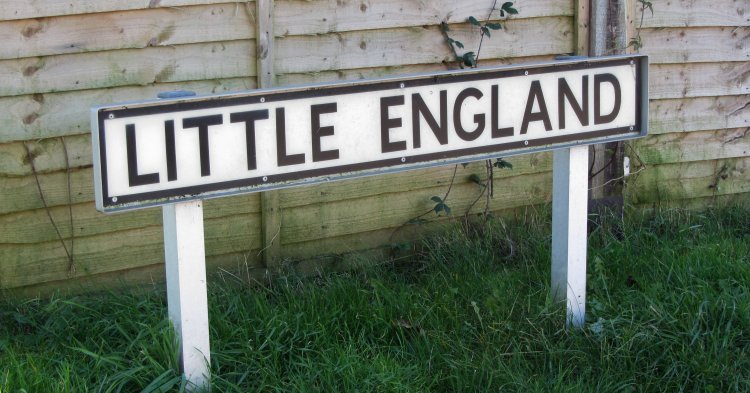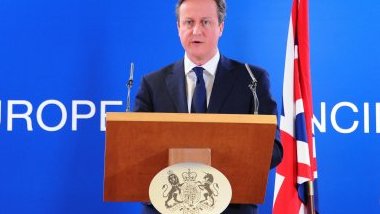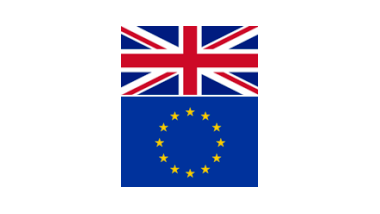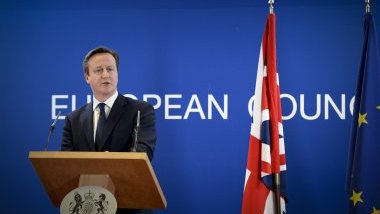This nationalism has, sadly, been a largely overlooked thread of Tory policy which has not been challenged strongly enough.The opposition Labour Party are facing something of an identity crisis and have preferred to focus on more economic and domestic policy, though they do remain more internationalist in their outlook than the Conservatives. This distinction is however becoming more marginal as Labour senses the political centre ground shifting, particularly in England. They are now backing the referendum on the EU, vocally demanded a cut in the last EU budget framework and loudly promoted their anti-immigrant policies during the election campaign. These facts, along with UKIP’s 4 million votes (though they only won 1 seat), paint a very bleak picture for those of an internationalist outlook in the UK.
British Nationalism in Action
In a depressing irony the SNP – who now command vast majorities in both the UK and Scottish parliaments – and not the Conservatives, have most often received the “nationalist” label. Despite their firmly pro-EU credentials, more relaxed attitude to immigration and decidedly more progressive conception of nationality, this irony seemed to escape the Tories as during the 2015 election they demonised the SNP in Scotland as being “narrow nationalists” and in England just for being Scottish and centre-left. This was one of the key moments in defining this nationalism as particularly parochial and cynical – they were actually trying to win the election by pitting one part of the country against another. There was terror in England as people became convinced that the SNP would manipulate a Labour government and cause chaos, while in Scotland there was fury and indignance at what many saw as an attack on the SNP’s Scottishness, rather than just their policies.
But it is in other areas that this trend can be most keenly observed. The Conservatives have become increasingly hostile to immigration, going to the extreme lengths of even splitting up married couples when one is an immigrant and their British partner is earning less than a certain amount. They refused for a long time to accept any refugees from Syria, still refuse those crossing the Mediterranean and tried to suppress a report which argued that the negative economic impact of immigration was less severe than the Tories had been claiming.
But while anti-immigration sentiment is on the rise in many right wing European parties, Cameron may yet go further. He has promised to scrap the human rights act, make Britain free to ignore European Court of Human Rights rulings and has refused to rule out leaving the ECHR altogether. A Tory policy paper suggests a British Bill of Rights, similar to the ECHR except that the government would decide how each right should be interpreted and even which ones are enforceable. Clearly these narrowly government-defined, unenforceable rights somewhat defeat the point of having such laws and documents at all. This, and the fact that the plans make very little legal sense, also occurred to the Conservatives’ attorney general, who resigned rather than support the initiative. This project has slowed recently as Cameron realised that some of his own party might publicly oppose it, and that trying to force it on Scotland or Northern Ireland against their parliaments’ wills would be a legal and political catastrophe. But in the longer term, this ideological fervour has the government resolved to continue.
How does the EU fit in?
So though it may not be of much consolation, the UK’s current EU policy is not driven principally by a set of rational complaints directed specifically at the EU. It is instead a vague collection of half-baked demands, driven by a determined indignance and suspicion of all things foreign. Even international aid is beginning to feel the pressure as Mr Cameron suggested it could conditionally be diverted to the Ministry of Defence. It is this feeling that led the government to ban EU citizens residing in the UK from voting in the EU referendum while British expats will be able to vote. This clearly reveals Cameron’s narrow, ethnic conception of nationality. In Scotland the hypocrisy is particularly apparent: if the Scottish Government had banned UK and EU citizens from voting in the independence referendum, there would surely have been outraged accusations of a sinister nationalist attempt to rig the referendum. As it stands, Cameron has largely been congratulated for his actions – a high profile former defence minister declared the alternative would have been “an unacceptable dilution of the voice of the British people”.
This is why David Cameron’s approach to EU negotiations often seem so vague and bizarre. In 2005 he pulled the Conservatives out of the EPP group; in 2011 he vetoed the budget treaty – something even Thatcher never did – to protect the bankers that had just trashed the UK economy; in 2012 he threatened to veto a proposal that other countries said had never actually been proposed, and let’s not forget that the UK already has opt-outs of the Euro, JHA laws, parts of the ECFR, Schengen and a budget rebate. He calls for a single market, but also for scrapping EU regulations which help the single market work, serious restrictions on free movement and an opt-out of “ever closer union”as he threatens to support a Brexit.
So it is clear, then, that Cameron is not doing these things to reach a rationally agreed treaty. His apparent interest is not in the EU itself but in isolationism and disdain for “foreign interferences”. It seems increasingly that he just wants to go to Brussels and “stand up” to the EU, then return home to flashy headlines, adoring crowds, placated backbenchers and favourable poll ratings. This ideological nationalism he has stoked in pursuit of electoral success is driving a misinformed and unproductive debate that goes against the interests of both the UK and the EU. Let us only hope that he is now willing and able to control it.







Follow the comments: |
|
